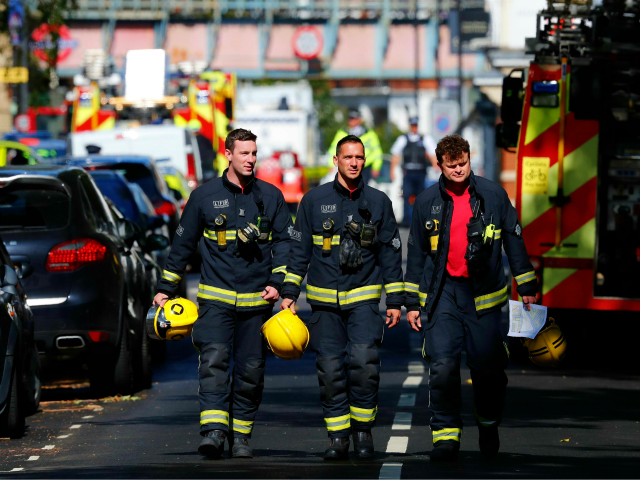An illegal migrant from Iraq was set to be given the all-clear by the government’s deradicalisation programme shortly before he planted a bomb on a London tube at Parsons Green.
The case of Ahmed Hassan was discussed by a multi-agency panel, aiming to assess his risk of being drawn into terrorism, ten days before he launched the attack, The Times reports. However, they had failed to review his case for months before he struck.
After entering the UK in a lorry from France in October 2015, the future terrorist openly told the authorities in January 2016 he had been trained to kill by Islamic State.
In March 2018 he was convicted of the attempted murder of 93 people on the London underground train, and jailed for a minimum of 34 years.
Now, an inquiry investigating the case since he was sentenced has found no formal plan had been put in place during the 15 months he was on the Channel deradicalisation programme – part of the government’s Prevent strategy that deals with the most serious cases.
‘Dangerous and Devious’ Iraqi Asylum Seeker Gets Life for Parsons Green Bomb https://t.co/15FX29VDXo
— Breitbart London (@BreitbartLondon) March 23, 2018
The revelations came after Sir Philip Rutnam, permanent secretary at the Home Office, was forced to release the details by the Home Affairs Select Committee.
Writing to Labour MP Yvette Cooper, who heads the committee, Sir Philip said that a panel from Channel had been “in the process of considering closure of [Hassan’s] case”.
The Channel panel did not, however, discuss his case for eight months after his arrival, until June 2016, it was also revealed.
After that, he was discussed just nine times in the next year and four months, and then not at all between January and June of last year, despite the fact that his case should have been reviewed monthly, according to guidance.
Police officers in Channel spoke with Hassan twice, in August and November 2016, with no concerns raised.
Furthermore, his foster carers were not told about the risk he posed, including after he repeatedly went missing from their home.
Sir Philip conceded that police Prevent officers, and therefore the panel, “did not fully consider these absences further in the context of [Hassan’s] vulnerabilities”.
Surrey council said it had been a difficult case. A spokesman told The Times: “Our work with other agencies, in this case, wasn’t as good as it should have been and we’re sorry for our part in that.”

COMMENTS
Please let us know if you're having issues with commenting.